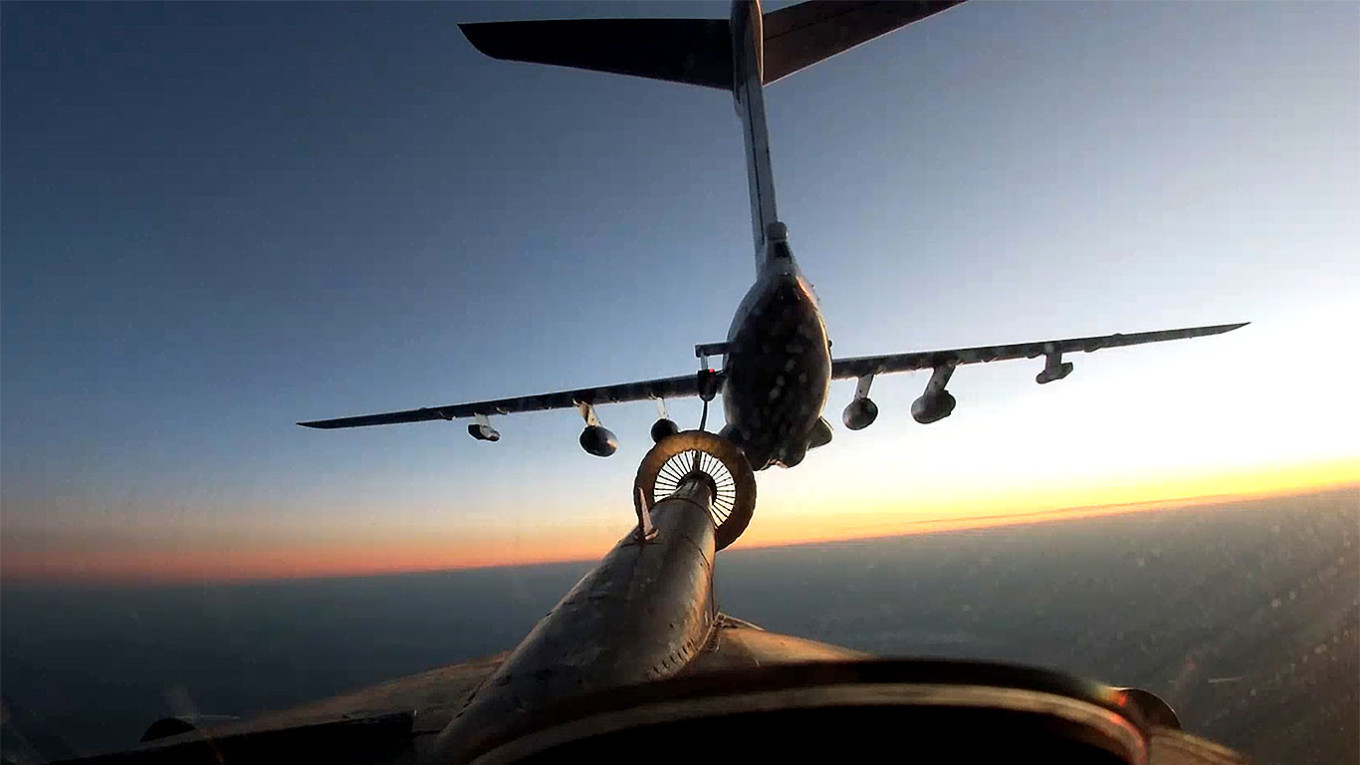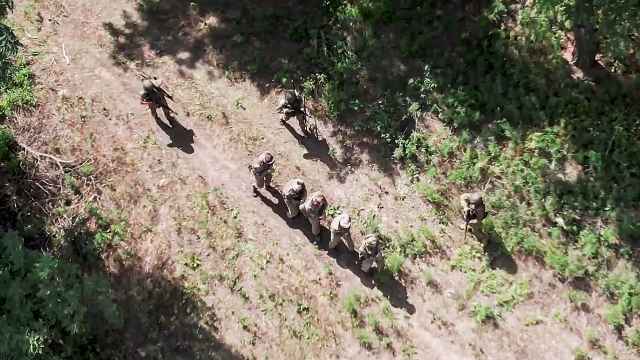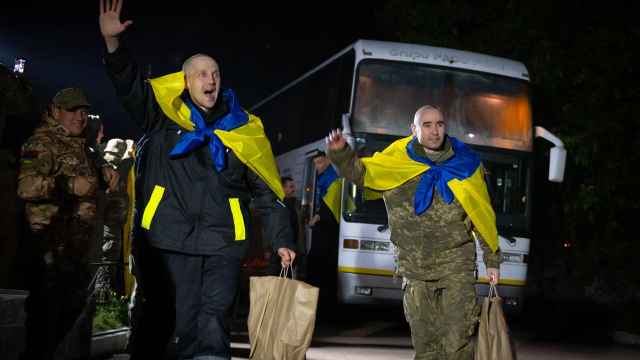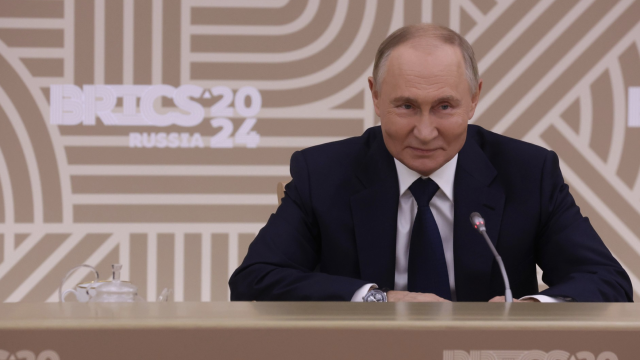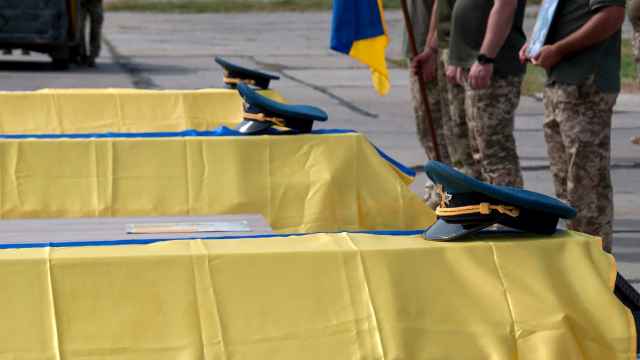A blistering wave of Russian strikes targeting Ukraine's energy infrastructure killed 11 people on Thursday, a day after Germany and the United States pledged heavy tanks for Kyiv.
The stepped-up military aid swept aside long-standing misgivings among allies and signalled a surge of Western support for a counteroffensive against the Russian invasion.
The latest wave of Russian attacks came as the Kremlin said it perceived the tanks "as direct involvement in the conflict."
Many Ukrainians welcomed the move, with a doctor who only gave her first name Liza telling AFP near the frontline city of Bakhmut that "this should have happened sooner and in bigger quantities."
As a result of Russia's latest missile strikes, 11 people were killed and 11 others were wounded, Ukraine's emergency services said.
Earlier in the day, officials said that a 55-year-old man was killed in Kyiv by fragments of a missile that was shot down by Ukrainian air defense systems.
The Ukrainian army said its forces destroyed 47 out of the 55 missiles launched by Russia.
Since October, Russia has launched regular strikes against energy infrastructure across Ukraine, where temperatures are near freezing.
Energy Minister German Galushchenko accused Russia of seeking to "create a systemic failure in Ukraine's energy system."
Emergency shutdowns
The electricity supply in Kyiv stabilised by the afternoon, but in the southern region of Odessa on the Black Sea, "emergency power outages will continue," energy provider DTEK said.
The attacks delayed the visit of French Foreign Minister Catherine Colonna, who arrived in Odessa to discuss aid with Ukraine's top diplomat Dmytro Kuleba.
The United States said Wednesday it would provide 31 Abrams tanks to Ukraine while German Chancellor Olaf Scholz gave the green light to send 14 Leopard 2 tanks -- a decision that opened the floodgates to several other European countries armed with Leopards to send their own contributions.
Britain's government said it was aiming to send tanks at the end of March, with training starting next week.
Although Western countries have already sent Ukraine everything from artillery to Patriot anti-missile defense systems, tanks were long considered a step too far, risking a widening backlash from Russia.
But with Ukraine gearing up for a counteroffensive to push back increasingly entrenched Russians in the east and south, the allies are now scrambling to respond.
German Defence Minister Boris Pistorius said Thursday that Leopard tanks pledged by Berlin would arrive in "late March, early April."
Training of Ukrainian troops on German Marder infantry fighting vehicles will start in the next few days, he added, and "a little later" for the Ukrainian soldiers who will be trained on the Leopard.
'Offensive operation'
Kremlin spokesman Dmitry Peskov said the tank deliveries represented "direct involvement in the conflict."
But Paris insisted that neither France nor its allies are fighting a war against Russia.
"We are not at war with Russia and none of our partners are," said foreign ministry spokeswoman Anne-Claire Legendre.
"The delivery of military equipment... does not constitute co-belligerence."
After a series of battlefield setbacks, Russia has claimed gains on the eastern front, where Ukraine conceded that its troops had pulled out of the town of Soledar in the Donetsk region.
Russian forces and units with the Wagner mercenary group claimed two weeks ago they had captured the small salt-mining town.
On Wednesday, Ukrainian Deputy Defense Minister Ganna Malyar said Moscow was also intensifying pressure along the eastern front, in the fight for nearby Bakhmut.
The U.S.-based Institute for the Study of War said Russia was engaging in "spoiling attacks across most of the frontline in Ukraine in order to disperse and distract Ukrainian forces."
Those measures, it said, were to "set conditions to launch a decisive offensive operation" in the eastern Lugansk region.
With Russian forces pushing forward, the chief of the UN refugee agency told AFP that Kyiv and European governments should prepare for a possible wave of people fleeing the fighting.
He said that, despite repeated offers of assistance, Russia was still only granting the agency limited access to Ukrainians there.
"Any exacerbation of war risks causing further displacement, one way or another, and we need to be ready for that," UN High Commissioner for Refugees Filippo Grandi said in Kyiv.
Separately, Ukraine threatened to boycott the 2024 Olympics in Paris if Russian and Belarusian athletes are allowed to take part.
The International Olympic Committee (IOC) said ways to allow competitors from Russia and Belarus should be "further explored," despite them being sidelined from most Olympic sports since the invasion of Ukraine last February.
"Such a situation is unacceptable for our country," Ukrainian Sports Minister Vadym Goutzeit said.
A Message from The Moscow Times:
Dear readers,
We are facing unprecedented challenges. Russia's Prosecutor General's Office has designated The Moscow Times as an "undesirable" organization, criminalizing our work and putting our staff at risk of prosecution. This follows our earlier unjust labeling as a "foreign agent."
These actions are direct attempts to silence independent journalism in Russia. The authorities claim our work "discredits the decisions of the Russian leadership." We see things differently: we strive to provide accurate, unbiased reporting on Russia.
We, the journalists of The Moscow Times, refuse to be silenced. But to continue our work, we need your help.
Your support, no matter how small, makes a world of difference. If you can, please support us monthly starting from just $2. It's quick to set up, and every contribution makes a significant impact.
By supporting The Moscow Times, you're defending open, independent journalism in the face of repression. Thank you for standing with us.
Remind me later.


